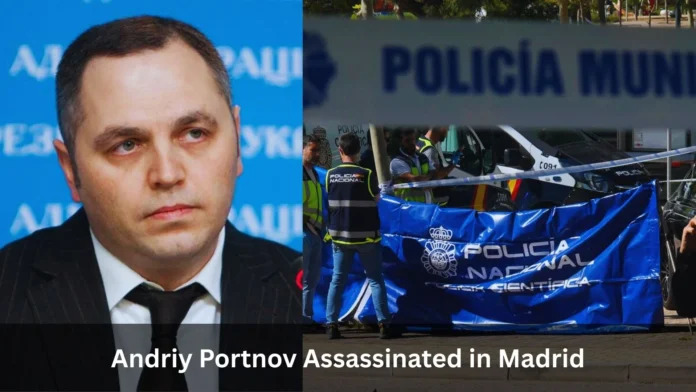Key Takeaways
- Assassinated in Madrid: Andriy Portnov Assassinated in Madrid on May 21, 2025, as the former Ukrainian lawmaker and one-time adviser to ex-President Viktor Yanukovych was gunned down near a private school in a Madrid suburb.
- Polarizing Political Legacy: Portnov was a prominent figure known for his legal reforms and alleged misuse of judicial power during a politically volatile era in Ukraine.
- Global Sanctions: He had previously faced international sanctions for alleged corruption and manipulating the judiciary.
- Criminal or Political Motive?: Spanish authorities are actively investigating the murder, exploring potential political motivations and links to organized crime.
Introduction: A High-Profile Killing in Spain
In a chilling and highly public incident, Andriy Portnov was gunned down in the upscale neighborhood of Pozuelo de Alarcón, Madrid. The shooting occurred during school hours, as Portnov was reportedly picking up or dropping off his children. Witnesses reported a chaotic scene close to the school grounds, including several gunshots.
Political Rise and Controversy
Portnov began his political journey with reformist aspirations but quickly gained notoriety for his association with former President Viktor Yanukovych. He served in senior government roles, notably shaping judicial policy during a critical period in Ukraine’s recent history.
While some credited him for pushing through needed legal frameworks, critics accused him of turning the judiciary into a political weapon. His influence was especially evident during the Euromaidan protests, a time when the Ukrainian state was frequently criticized for suppressing dissent and violating human rights.
Legal Troubles and Exile
In the aftermath of Ukraine’s 2014 revolution, which saw the fall of President Yanukovych, Portnov sought refuge abroad, asserting that he was a victim of political retribution. Over the years, he resided in various countries and was the subject of several legal investigations related to treason, financial misconduct, and abuse of power.
Though some charges were dropped or unproven, his reputation remained clouded by serious allegations. He became a symbol of Ukraine’s struggle with political corruption and the legacy of the Yanukovych era.
A Short-Lived Return and New Life Abroad
Portnov briefly returned to Ukraine in 2019, but his comeback was met with controversy and legal challenges. After the 2022 invasion of Ukraine, he relocated once again, eventually settling in Spain, where he led a relatively low-profile life—until his assassination.
The Attack: What We Know
The attack was carried out in broad daylight by unknown assailants. Witnesses reported seeing the gunmen escape into nearby woods. Authorities launched an extensive manhunt and are treating the case with the utmost seriousness due to Portnov’s background and the high-profile nature of the incident.
The fact that the killing happened in front of a school has added urgency to the investigation, prompting heightened security measures in the area.
Possible Motives: Politics, Revenge, or Organized Crime?
Multiple theories are being explored. The assassination may have been politically motivated, considering Portnov’s involvement in divisive legal actions and his perceived pro-Russian stance. Alternatively, it could be tied to criminal networks, as some allege he had dealings that intersected with Eastern European oligarchs and powerful interests.
Given Spain’s history as a destination for political exiles and wealthy individuals from conflict zones, the incident also raises broader concerns about the reach of international vendettas.
Conclusion: A Legacy Cut Short
The life of Andriy Portnov was marked by power, controversy, and ultimately, violence. His assassination underscores the risks faced by politically exposed individuals and opens a new chapter in the ongoing saga of post-revolutionary Ukraine.
Whether viewed as a victim, a villain, or something in between, Portnov’s story is a stark reminder of how unresolved political conflicts can echo across borders—and sometimes end in tragedy.


